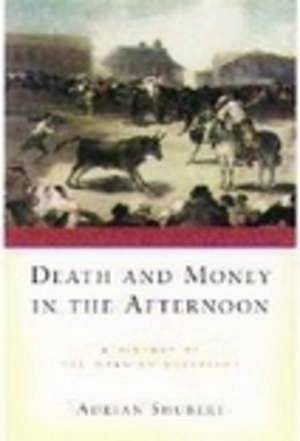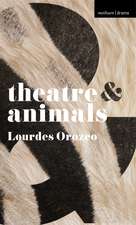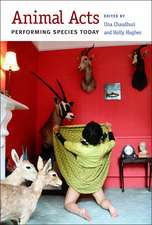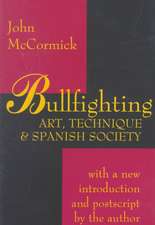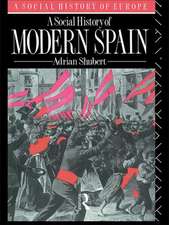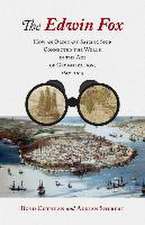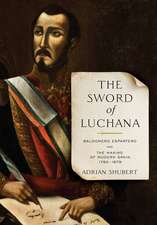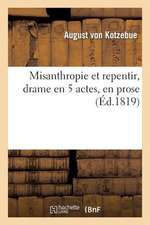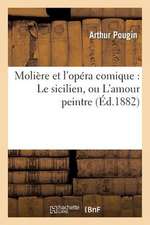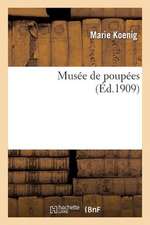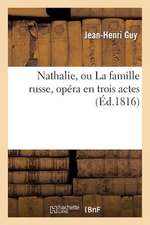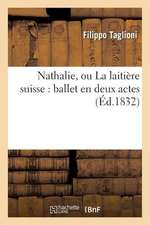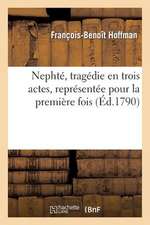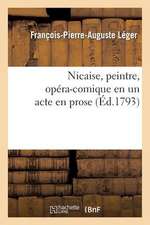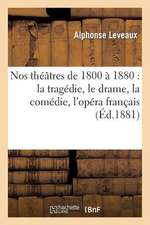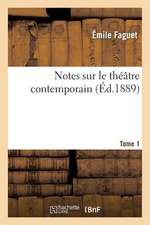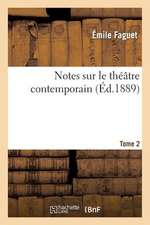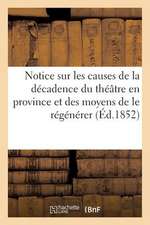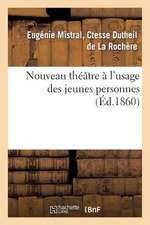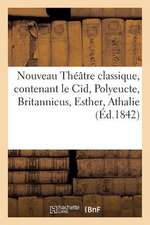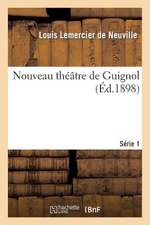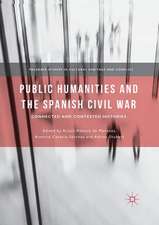Death and Money in the Afternoon: A History of the Spanish Bullfight
Adrian Shuberten Limba Engleză Paperback – 5 iul 2001
Preț: 494.53 lei
Preț vechi: 611.50 lei
-19% Nou
Puncte Express: 742
Preț estimativ în valută:
94.66€ • 102.85$ • 79.56£
94.66€ • 102.85$ • 79.56£
Carte tipărită la comandă
Livrare economică 10-16 aprilie
Preluare comenzi: 021 569.72.76
Specificații
ISBN-13: 9780195144123
ISBN-10: 0195144120
Pagini: 284
Ilustrații: 17 halftones, 3 maps, 2 graphs, 1 table
Dimensiuni: 122 x 196 x 20 mm
Greutate: 0.32 kg
Editura: Oxford University Press
Colecția OUP USA
Locul publicării:New York, United States
ISBN-10: 0195144120
Pagini: 284
Ilustrații: 17 halftones, 3 maps, 2 graphs, 1 table
Dimensiuni: 122 x 196 x 20 mm
Greutate: 0.32 kg
Editura: Oxford University Press
Colecția OUP USA
Locul publicării:New York, United States
Recenzii
this is undoubtedly a well written and innovative book that will have a broad audience, and that will certainly surprise many economic historians that have so far considered the bullfight as an institution to be forgotten rather than to be studied, much less to be praised.
The book is a good example of how doing good comparative history can yield very interesting results.
Shubert's innovative approach studies not only the changing social, political, and cultural aspects of the Spanish bullfight but above all the economic and entrepreneurial side of it.
One may smile at the title of this book, but this will certainly change to show respect and admiration after reading Shubert's original interpretation of the Spanish bullfight during the eighteenth and above all nineteenth centuries.
Schubert's book is distinguished from others by its treatment of the bullfight as largely a commercial spectacle and its stress on the eighteenth and nineteenth centuries.
"An original and persuasive interpretation of an institution that has been intimately identified with Spanish society by Spaniards and foreigners alike for more than two centuries. Drawing on archive evidence, travelers' accounts, trade journals, and legislative and political sources, as well as from the massive secondary literature, Adrian Shubert argues that, as an early and highly successful example of a commercialized leisure activity, the bullfight was `one of the most modern things in Spain' in the eighteenth and nineteenth centuries. This is an engaging work of social history that will be of interest to general readers as well as specialists in the field."--Carolyn Boyd, Chair and Professor of History, University of Texas, Austin
"An impressive achievement of tone and scholarship over the usual bombast, this book is recommended for Spanish culture or large sports collections."--Library Journal
"A remarkable and wholly successful book. Offering a new interpretation of this most Spanish of Spanish pastimes, Shubert liberates the corrida from the machismo attributed by Hemingway and other foreign writers. In a word, capitalism is in, romanticism out, as Shubert, examining the business-side of the corrida, rightly sees bullfighting as a pioneer institution in the commercialization of leisure and sport. In doing so, moreover, Shubert alters the traditional view of Spain as a country out of step with modernity itself. Lucidly written, this book--like the bullfight itself--deserves a wide audience."--Richard Kagan, Professor of History, Johns Hopkins University
"Shubert's study is a delight. This is clearly the best one-volume social history of the classic bullfight available in any language."--Stanley Payne, Professor of History, University of Wisconsin, Madison
"Adrian Shubert's book on bullfighting is a major contribution to the social history of modern Spain but it is also much more--a scholarly, witty and endlessly fascinating book which helps us understand many of the enigmas of the recent Spanish past." --Paul Preston, Principe de Asturias Chair of Contemporary Spanish History and Director of the Cañada Blanch Centre for Contemporary Spanish Studies, London School of Economics. Author of Franco: A Biography, The Triumph of Democracy in Spain^ and The Coming of the Spanish Civil War
The book is a good example of how doing good comparative history can yield very interesting results.
Shubert's innovative approach studies not only the changing social, political, and cultural aspects of the Spanish bullfight but above all the economic and entrepreneurial side of it.
One may smile at the title of this book, but this will certainly change to show respect and admiration after reading Shubert's original interpretation of the Spanish bullfight during the eighteenth and above all nineteenth centuries.
Schubert's book is distinguished from others by its treatment of the bullfight as largely a commercial spectacle and its stress on the eighteenth and nineteenth centuries.
"An original and persuasive interpretation of an institution that has been intimately identified with Spanish society by Spaniards and foreigners alike for more than two centuries. Drawing on archive evidence, travelers' accounts, trade journals, and legislative and political sources, as well as from the massive secondary literature, Adrian Shubert argues that, as an early and highly successful example of a commercialized leisure activity, the bullfight was `one of the most modern things in Spain' in the eighteenth and nineteenth centuries. This is an engaging work of social history that will be of interest to general readers as well as specialists in the field."--Carolyn Boyd, Chair and Professor of History, University of Texas, Austin
"An impressive achievement of tone and scholarship over the usual bombast, this book is recommended for Spanish culture or large sports collections."--Library Journal
"A remarkable and wholly successful book. Offering a new interpretation of this most Spanish of Spanish pastimes, Shubert liberates the corrida from the machismo attributed by Hemingway and other foreign writers. In a word, capitalism is in, romanticism out, as Shubert, examining the business-side of the corrida, rightly sees bullfighting as a pioneer institution in the commercialization of leisure and sport. In doing so, moreover, Shubert alters the traditional view of Spain as a country out of step with modernity itself. Lucidly written, this book--like the bullfight itself--deserves a wide audience."--Richard Kagan, Professor of History, Johns Hopkins University
"Shubert's study is a delight. This is clearly the best one-volume social history of the classic bullfight available in any language."--Stanley Payne, Professor of History, University of Wisconsin, Madison
"Adrian Shubert's book on bullfighting is a major contribution to the social history of modern Spain but it is also much more--a scholarly, witty and endlessly fascinating book which helps us understand many of the enigmas of the recent Spanish past." --Paul Preston, Principe de Asturias Chair of Contemporary Spanish History and Director of the Cañada Blanch Centre for Contemporary Spanish Studies, London School of Economics. Author of Franco: A Biography, The Triumph of Democracy in Spain^ and The Coming of the Spanish Civil War
Notă biografică
Adrian Shubert is Professor and Chair of the Department of History at York University, Toronto, Canada. His other books include The Land and People of Spain, A Social History of Modern Spain, and Spain at War. He lives in Toronto.
